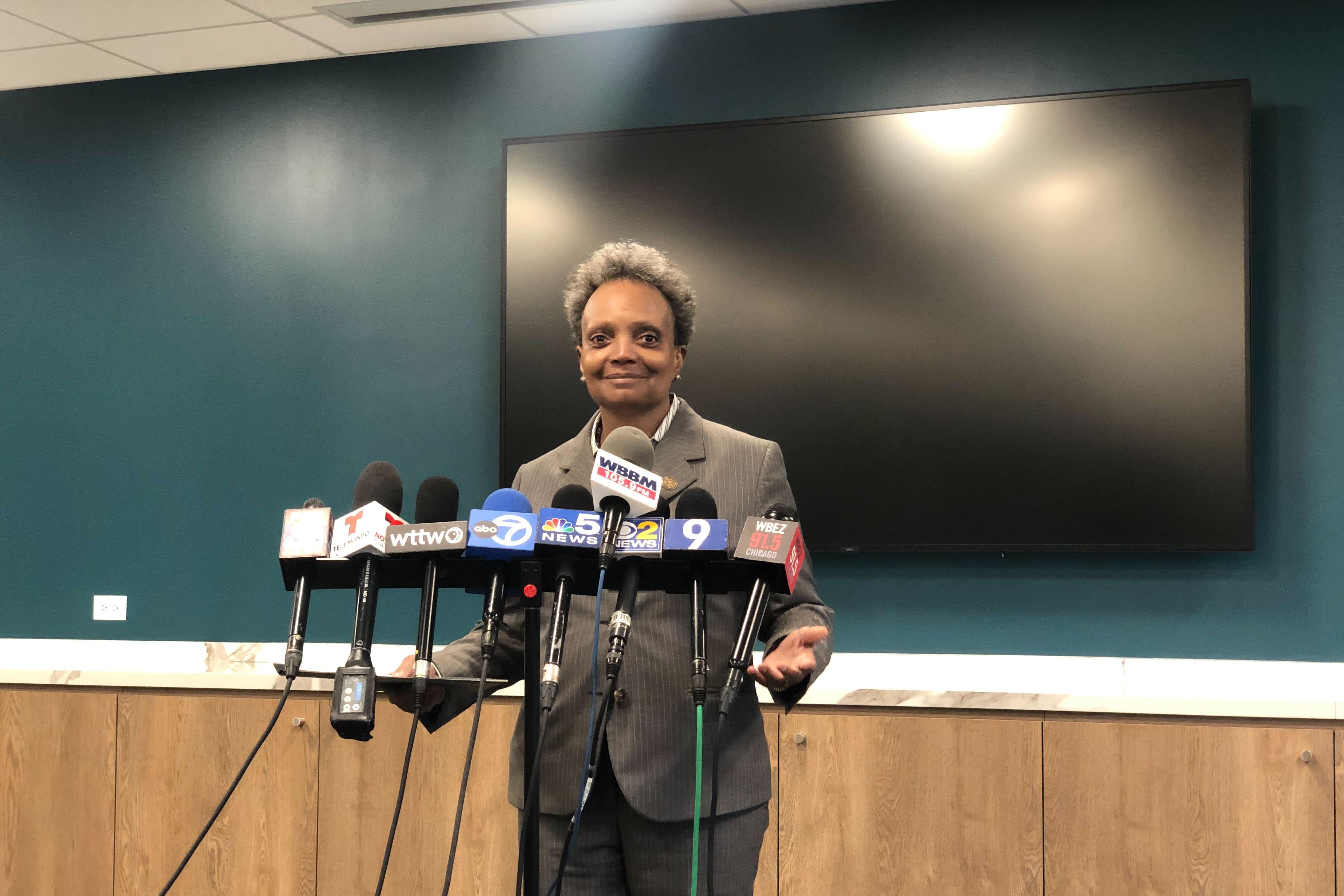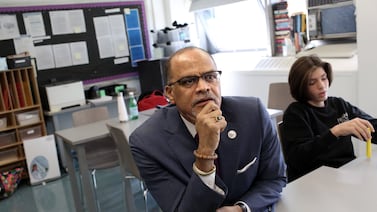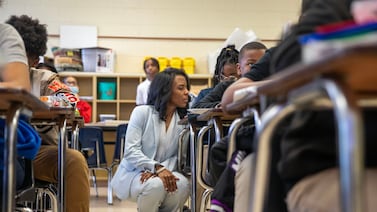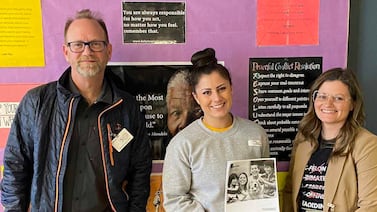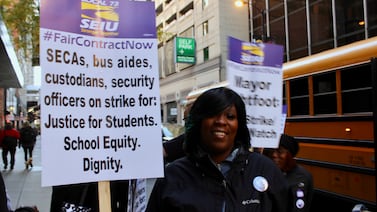Chicago’s Board of Ethics is calling for a deeper investigation into emails sent by Mayor Lori Lightfoot’s reelection campaign to public school teachers and city college staffers soliciting student volunteers in exchange for class credit.
Board of Ethics members voted unanimously Monday to refer the complaint against the mayor’s campaign to the city’s Inspector General and Chicago Public Schools’ Inspector General. The district’s watchdog has already opened an investigation.
The dual inquiries come after Lightfoot’s deputy campaign manager emailed Chicago Public Schools teachers on their work email accounts seeking student volunteers for her re-election campaign in exchange for school credit. The campaign also sent similar emails in the fall to staff at City Colleges, prompting a warning for the community college system’s ethics department.
The emails came to light in a WTTW story and quickly drew condemnation from elected officials, teachers, and challengers in the city’s Feb. 28 mayoral election . Lightfoot is seeking a second term as mayor.
The vote to refer the complaint to the city’s Inspector General and Chicago Public Schools’ Inspector General happened after a closed-door executive session. Now, each inspector general will decide whether the mayor’s campaign emails violated city or school district ethic codes.
The board received a complaint on Jan. 12, which alleged a candidate’s campaign “violated the Ordinance’s gift and prohibited political activity provisions by sending emails asking to governmental employees at their official governmental email addresses,” according to a summary posted Tuesday.
Prior to Monday’s meeting, the board’s monthly agenda did not include the specifics of the case or the subject of the investigation. Following the vote, Chair William Conlon said with most complaints, the board doesn’t yet know if it’s factual or not and therefore, can’t rule on whether there was actually an ethics violation.
“Factual investigations are conducted by the inspector general,” Conlon said. “Those investigations then form the factual basis for this board’s determination and action.”
In a series of three statements on Jan 11, the Lightfoot campaign initially said the request for student volunteers was “common practice,” then said it would alert staff that “a solid wall must exist between campaign and official activities.” The next day, Lightfoot said the staffer made a “mistake” but would not be fired, instead calling it a “teachable moment” for the young staffer.
In an email statement to Chalkbeat Tuesday afternoon, the mayor’s campaign again said the emails to city employees were a mistake.
“While our campaign legal team has asserted that these organizing efforts were legal and did not violate any ethics ordinance, we have halted any such recruitment efforts,” a campaign spokesperson said in the statement.
The city’s Office of the Inspector General and Chicago Public Schools’ investigative arm did not immediately respond to requests for comment.
The Office of Inspector General Deborah Witzburg told the Sun-Times the investigations were confidential and they were limited in making public statements regarding their work. Still, she noted that in her view, “the abuse of an official position for political gain has no place in Chicago.”
Without addressing the specific complaint, the Board of Ethics has advised public officials, candidates for public office, and their entities to scrub their email lists of any government email addresses, Conlon said during Monday’s meeting.
“We have in the past sent notices to public officials throughout the city and given them advice on matters that we consider important in understanding and complying with the ethics ordinance,” Conlon said.
The board also advises candidates and anyone affiliated with those candidates “that emails and other forms of solicitation may be considered coercive if directed to city employees and or those employed by sister city agencies,” Conlon added.
Lightfoot’s previously said her campaign would cooperate with any investigation.
“There was zero, zero, zero coordination, coercion, or anything else between the campaign and CPS on this issue,” Lightfoot said earlier this month.
Mauricio Peña is a reporter for Chalkbeat Chicago covering K-12 schools. Contact Mauricio at mpena@chalkbeat.org.


